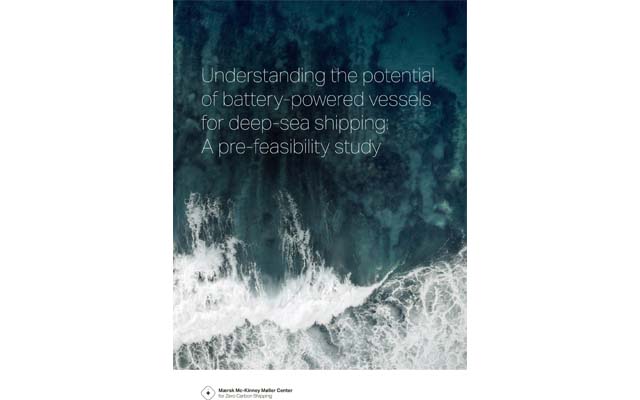Newly-published research by the Mærsk Mc-Kinney Møller Center for Zero Carbon Shipping, supported by Sea, the one-stop shop for digitising freight, examines the potential of battery-powered vessels for deep-sea shipping.
With the global shipping industry being responsible for 3% of global GHG emissions, the report reveals that battery-electric systems could be the answer and reduce vessel emissions by up to 17%.
Key findings from the report are:
- Electrification of smaller merchant vessels in the segments covered by the study could free up 1.8 EJ of renewable energy (corresponding to 500 TWh of renewable energy) and reduce CO2 emissions by up to 17% in the respective vessel segments – i.e. 17% for tankers, 8% for containers, and 5% for dry-bulk – 10% on average across the three segments (Figures at segment level, rather than vessel level)
- Using battery-electric systems in shipping presents an opportunity to significantly decrease the overall demand for renewable electricity required to decarbonise the world fleet. However, batteries face challenges and scepticism as an onboard energy solution for deep-sea vessels.
- A proposed ‘hybrid power plant’ approach where the vessel is designed with a battery capacity that can supply an average of 80% of the electricity consumed at sea, with the remaining 20% supplied by auxiliary sources. This substantially reduces the required battery capacity while maintaining operational flexibility and safety in adverse weather conditions.



